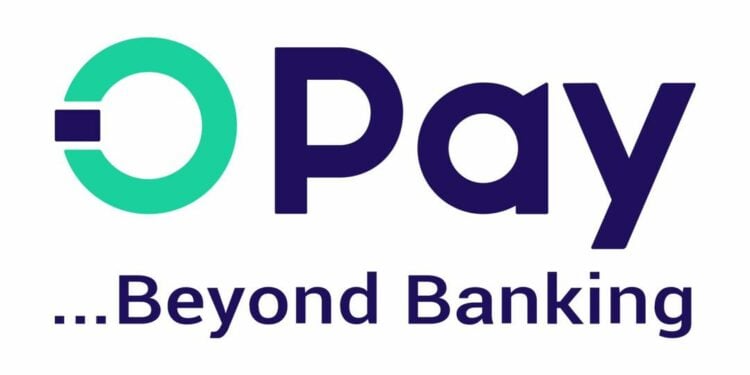Launched in 2010, OPay initially focused on providing mobile money services but underwent a significant transformation in July 2020 when it pivoted entirely to fintech. The company shut down its non-core services to focus exclusively on mobile money and financial services.
This strategic shift has been pivotal in expanding access to financial services for millions of Nigerians, especially in a country where many remain unbanked or under-banked. According to the Central Bank of Nigeria (CBN), only 45 per cent of Nigeria’s adult population is fully banked, leaving a massive portion of the population without access to essential financial services. OPay has bridged this gap, providing a seamless platform for mobile money transactions, including bill payments, airtime top-ups, and utility services—all from a single app.
OPay’s user-friendly interface, low transaction fees, and nationwide agent network have been instrumental in democratising financial services across Nigeria. By enabling millions of Nigerians to send and receive money, pay bills, and access financial services without needing a traditional bank account, OPay has successfully connected millions of Nigerians to the formal economy.
The platform’s extensive agent network has also played a crucial role, creating thousands of job opportunities, particularly in rural and semi-urban areas, where financial services have traditionally been limited or non-existent. This network empowers communities, allowing people once excluded from the financial system to engage in modern banking services.
A Comprehensive Digital Financial Ecosystem
Its innovative approach to digital payments is at the heart of OPay’s success. The platform goes beyond peer-to-peer money transfers by integrating services like bill payments, airtime top-ups, and utility services, all accessible through a single app. This one-stop solution eliminates the need for Nigerians to visit physical bank branches or juggle multiple apps for basic financial tasks, making everyday transactions more efficient and accessible.
QR code payments have further strengthened OPay’s position, allowing users to make instant payments without using cash, thus promoting Nigeria’s shift toward a cashless economy. The platform’s collaboration with banks and other fintechs has expanded its reach, providing customers with more payment options and enabling smoother, real-time transactions.
In a country with a complex regulatory landscape, OPay has navigated compliance challenges while prioritising security. The platform employs advanced measures such as encryption and biometric verification to protect users’ funds and ensure secure transactions. Notably, OPay has introduced several key security features, which include:
- Large Transaction Shield
This feature provides users with protection during high-value transactions. Users can set personalised limits for daily, monthly, or per-transaction transfers. Transactions exceeding these limits require additional verification, including facial recognition, adding an extra layer of security.
- Nightguard
To enhance security during late-night hours, OPay’s Nightguard feature requires facial recognition verification for transfers made between 11 p.m. and 7 a.m. This ensures that unauthorised transactions cannot occur during vulnerable times or while users sleep.
iii. Advanced Fraud Detection
OPay also employs a real-time fraud detection system that actively monitors suspicious activity. If potential fraud is detected, the system triggers a double-confirmation alert, allowing users to verify transaction details before proceeding. Additionally, users can quickly lock their accounts or cards via a simple USSD code in case of lost or stolen devices.
- NDIC Insurance Coverage
OPay has further bolstered user trust by aligning its security standards with the Nigeria Deposit Insurance Corporation (NDIC). OPay now offers enhanced insurance coverage for user deposits, with up to N5 million protection, significantly higher than the previous N500,000 guarantee.
These advancements highlight OPay’s commitment to delivering a secure, reliable platform for digital transactions, setting new benchmarks in Nigeria’s fintech space.
OPay’s commitment to social responsibility goes beyond its fintech offerings. The company is actively investing in education and community development, demonstrating its dedication to fostering growth and opportunity in Nigeria. Some of such CSR interventions include:
- Scholarship Initiative at ABU, Zaria: As part of its CSR efforts, OPay recently disbursed N12 million in scholarships to 40 indigent students of Ahmadu Bello University (ABU), Zaria. Each recipient received N300,000 to support their education. This initiative, which followed the signing of a Memorandum of Understanding (MoU) between ABU and OPay, highlights the company’s commitment to supporting students and alleviating the financial challenges faced by those pursuing higher education. This initiative is part of OPay’s broader strategy to empower young Nigerians and foster educational growth.
- Empowering Women in Zaria: OPay has also announced plans to empower women in Zaria through startup programs and other commercial initiatives. These efforts aim to provide women with the skills, resources, and financial support they need to succeed in business and contribute to the local economy.
iii. Scholarship Partnership with the University of Ibadan: OPay has also partnered with the University of Ibadan on a 10-year scholarship programme. Each year, 20 exceptional students will receive ₦300,000 in scholarships, with a total investment of ₦120 million annually. The initiative will expand to additional universities across Nigeria, providing crucial financial support to 400 students each year, totaling ₦1.2 billion over the next decade. This long-term commitment reflects OPay’s ongoing dedication to academic excellence and youth empowerment.
Navigating Competition & Market Challenges
Despite fierce competition from other fintech giants like Paga, Kuda and PalmPay, OPay continues to stand out due to its comprehensive service offerings and robust agent network. Its ability to adapt and innovate in response to customer needs has allowed it to maintain a dominant position in Nigeria’s competitive mobile payments market.
Furthermore, OPay’s alignment with Nigeria’s financial inclusion agenda has cemented its role in the nation’s transition to a digital economy. Its support for the cashless policy, especially during the CBN’s naira redesign and cash withdrawal challenges in 2022, has earned it widespread recognition.



